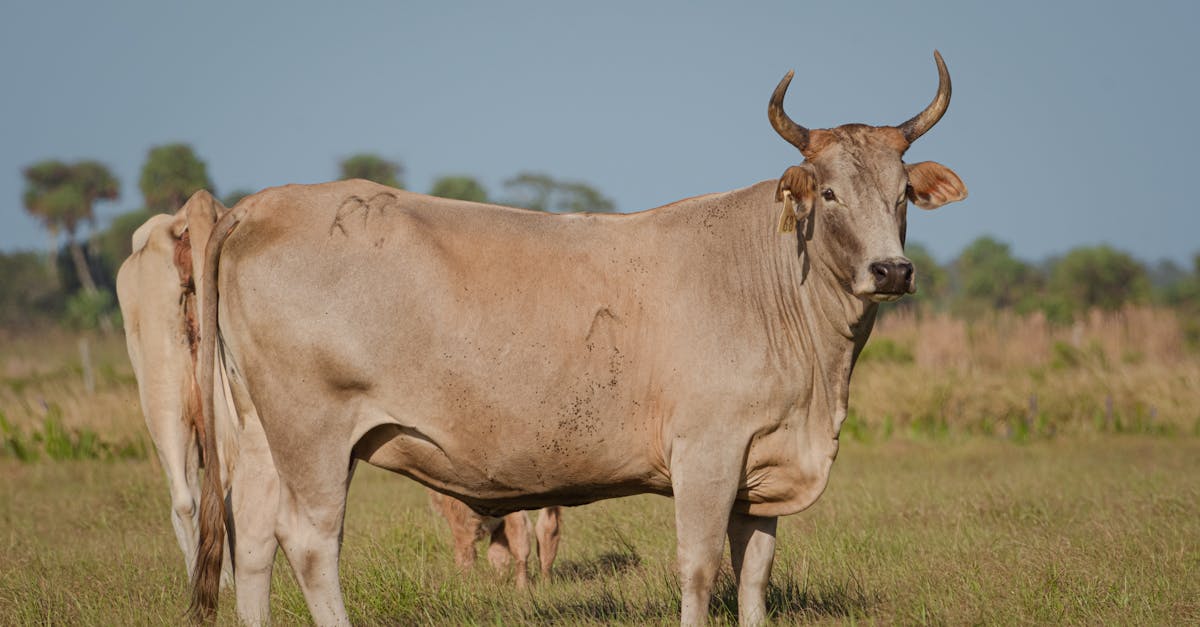Key Takeaways
- Agriculture tenders in Botswana are vital for advancing the country’s agricultural sector, offering opportunities in areas like irrigation systems, livestock farming, crop production, and agro-processing.
- Key sectors include livestock and animal husbandry, crop production, and agro-processing, addressing sustainability, productivity, and modernization.
- Participating in agriculture tenders provides economic benefits, enhances market visibility, and fosters innovation in farming practices while supporting sustainable development.
- Challenges such as accessibility to tender information, language barriers, and financial constraints can limit participation, especially for small-scale agribusinesses.
- Effective tender participation involves understanding submission requirements, aligning proposals with Botswana’s agricultural priorities, and building strong relationships with key stakeholders.
- Staying updated on tender announcements and engaging in agricultural forums and events can improve competitiveness and create new collaboration opportunities.
If you’re looking to tap into Botswana’s thriving agricultural sector, understanding agriculture tenders is key. These opportunities play a crucial role in connecting businesses, farmers, and suppliers with government projects and private initiatives aimed at boosting the country’s agricultural output. Whether you’re a local entrepreneur or an international investor, agriculture tenders open doors to impactful collaborations.
Botswana’s commitment to sustainable farming and food security has created a dynamic market for agricultural development. From irrigation systems to livestock management, the demand for innovative solutions is growing rapidly. By staying informed about tender processes and requirements, you can position yourself to contribute to and benefit from this vital industry.
Overview Of Agriculture Tenders In Botswana
Agriculture tenders in Botswana play a central role in advancing the country’s agricultural sector. These tenders cover a wide range of projects, including irrigation infrastructure, farm equipment supply, and agribusiness consulting services. Both government entities and private organizations frequently issue tenders to promote agricultural development and innovation.
Participation in these tenders offers opportunities for businesses and professionals to contribute to Botswana’s goals of sustainable farming and food security. Tender categories like crop production, livestock farming, and agricultural research often feature prominently. For example, tenders may request procurement of drought-resistant seeds, installation of solar-powered irrigation systems, or veterinary healthcare services.
Key stakeholders, such as the Ministry of Agricultural Development and Food Security, manage many tender processes. These stakeholders prioritize proposals that align with Botswana’s objectives of reducing reliance on food imports and boosting agricultural productivity.
Key Sectors In Agriculture Tenders
Agriculture tenders in Botswana reflect the country’s diverse agricultural priorities. These focus on enhancing productivity, sustainability, and modernization across key sectors.
Livestock And Animal Husbandry
Livestock and animal husbandry play a critical role in agricultural tenders. Botswana frequently issues tenders to develop cattle farming, poultry production, and veterinary services. Key projects often include livestock housing construction, provision of animal feed, and veterinary supplies. The government also supports disease control initiatives and breeding programs to boost livestock quality and reduce mortality rates.
Crop Production
Crop production tends to dominate tenders aimed at achieving food security. Projects often include the supply of seeds, fertilizers, and irrigation solutions. You’ll find tenders targeting staple crops like maize, sorghum, and millet, which are vital for local consumption. Some opportunities also focus on introducing resilient crop varieties to combat drought and climate change impacts. Participation could involve providing machinery, farming inputs, or agronomic advisory services.
Agro-Processing
Agro-processing is integral to value addition, creating numerous tender opportunities. These include developing food processing plants, cold storage facilities, and packaging solutions. Tendering projects often target activities like milling, meat processing, and transforming raw produce into export-ready goods. The demand for innovative processing techniques offers opportunities for equipment suppliers, consultants, and training providers to contribute to industrializing agriculture.
Benefits Of Participating In Agriculture Tenders
Engaging in agriculture tenders in Botswana provides access to a range of financial, operational, and developmental benefits. These opportunities strengthen your role in Botswana’s growing agricultural sector.
Economic Opportunities
Participation in agriculture tenders opens up significant revenue streams for your business. By securing contracts for projects like farm infrastructure development, fertilizer supply, or crop cultivation services, you can tap into Botswana’s expanding agricultural investments. Government and private sector partnerships often ensure timely payments and financial stability for contractors.
Winning tenders also increases your market visibility. As large-scale projects require diverse skills and products, your involvement positions your business as a key player in the sector. For instance, businesses offering irrigation systems or veterinary supplies gain direct exposure, fostering future collaborations.
Advancing Agricultural Practices
Tenders create opportunities to introduce innovative farming technologies and improve agricultural methods. Through contracts in areas like precision farming, agribusiness consulting, or food processing, you can contribute to modernizing Botswana’s agricultural landscape. These projects often include capacity-building initiatives, giving your team access to technical training and high standards.
Your participation also supports sustainable farming. Many tenders prioritize eco-friendly solutions, including renewable energy systems for farms or organic fertilizers. These initiatives help reduce environmental impact and align your operations with Botswana’s sustainability goals, enhancing long-term agricultural productivity.
Challenges In Agriculture Tenders In Botswana
Agriculture tenders in Botswana play a vital role in the sector’s development, but several challenges limit participation and efficiency. Understanding these challenges can help you navigate the tendering process effectively.
Accessibility Issues
Accessing detailed tender information can be difficult due to limited online platforms and centralized systems. Many tenders are published in specific local newspapers or government portals, restricting visibility for remote participants. If you operate in rural areas with unreliable internet or limited digital literacy, engaging with relevant authorities becomes necessary to stay updated.
Language barriers may also arise, as some tender documents use technical jargon or English, which might not be familiar to all participants. Ensuring clear communication and assistance for applicants can improve transparency and participation rates.
Financial Constraints
Agricultural businesses face significant financial barriers when preparing tender proposals. High costs associated with equipment procurement, project implementation, and fulfilling compliance requirements deter small-scale farmers and emerging agribusinesses. If you’re managing a small operation, securing loans or financial backing can be essential to covering these expenses.
Bid security deposits, mandatory in many tenders, further strain limited resources. Inadequate access to agricultural financing or government grants exacerbates these constraints, impacting your ability to compete in larger, capital-intensive projects. Developing sustainable funding mechanisms remains critical to addressing this challenge.
Tips For Effective Participation In Agriculture Tenders
Effective participation in agriculture tenders in Botswana requires a strategic approach to ensure compliance and competitiveness. Focusing on understanding tender requirements and stakeholder relationships can significantly improve your chances of success.
Understanding Tender Requirements
Review documents to ensure full compliance with submission criteria. Pay attention to eligibility requirements, technical specifications, and evaluation criteria to avoid disqualification. Include all requested documentation, such as financial statements, certifications, and references.
Adapt proposals to align with Botswana’s agricultural priorities. Highlight solutions that address food security, sustainability, or productivity, which align with the objectives of government or private entities issuing the tender.
Monitor deadlines to ensure timely responses. Prepare schedules and allocate resources to meet submission requirements without last-minute delays.
Building Relationships With Stakeholders
Engage stakeholders to gather critical insights. Establish connections with entities like the Ministry of Agricultural Development and Food Security or local agribusiness organizations for updates on upcoming projects and policy changes.
Collaborate with suppliers, contractors, or consultants. Partnerships can strengthen your tender application by showcasing stronger capabilities, experience, or innovative approaches.
Participate in forums and events related to Botswana’s agricultural sector. These platforms provide networking opportunities and help you stay informed about trends, challenges, and funding mechanisms influencing tender opportunities.
Conclusion
Agriculture tenders in Botswana present significant opportunities for businesses, farmers, and professionals to contribute to the nation’s agricultural transformation. By engaging with these tenders, you can play a role in advancing food security, sustainability, and innovation in the sector.
Understanding the tendering process and aligning your proposals with Botswana’s agricultural priorities can help you maximize these opportunities. With the right strategies and partnerships, you can navigate challenges and unlock the potential for growth and success in this vital industry.





